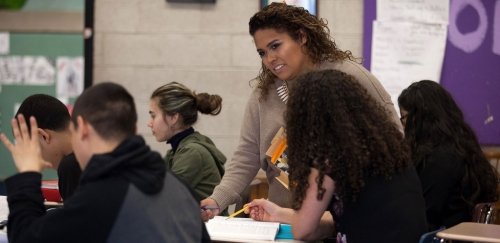General Education Learning Outcomes

Each course in General Education addresses several outcomes. Students who complete the general education program will encounter each outcome at least once at an introductory level.
General Education Outcomes
No introductory course can fully meet an outcome. Rather, every course introduces or develops several outcomes. Relevant outcomes are addressed at a higher level within the advanced work of the respective majors.
Written Communication
Students will understand the different purposes of writing and employ the conventions of writing in their major fields. Students will produce writing that is well organized, supported by evidence, demonstrates correct usage of grammar and terminology, and is appropriate to the academic context.
Critical or Creative Thinking
Students will be able to analyze and interpret information from multiple perspectives, question assumptions and conclusions, and understand the impact of biases, including their own, on thinking and learning.
Research Fluency
Students will demonstrate the ability to access, understand, evaluate, and ethically use information to address a wide range of goals or problems.
Oral Communication
Students will learn to speak in a clearly ex- pressed, purposeful, and carefully organized way that engages and connects with their audience.
Collaborative Work
Students will learn to interact appropriately as part of a team to design and implement a strategy to achieve a team goal and to evaluate the process.
Arts
Students will demonstrate through performance, creation, or analysis an ability to interpret and explain the arts from personal, aesthetic, cultural, and historical perspectives.
Civic Knowledge
Students will gain knowledge of social and political systems and of how civic engagement can change the environment in which we live.
Ethical Reasoning
Students will demonstrate an understanding of their own ethical values, other ethical traditions from diverse places and times, and the process of determining ethical practice.
Global Understanding
Students will analyze and understand the social, historical, political, religious, economic, and cultural conditions that shape individuals, groups, and nations and the relationships among them across time.
Quantitative Literacy
Students will demonstrate the ability to: (1) interpret and evaluate numerical and visual statistics; (2) develop models that can be solved by appropriate mathematical methods; and (3) create arguments supported by quantitative evidence and communicate them in writing and through numerical and visual dis- plays of data including words, tables, graphs, and equations.
Scientific Literacy
Students will understand how scientific knowledge is uncovered through the empirical testing of hypotheses; be familiar with how data is analyzed, scientific models are made, theories are generated, and practical scientific problems are approached and solved; have the capacity to be informed about scientific matters as they pertain to living in this complex world; be able to communicate scientific knowledge through speaking and writing.
